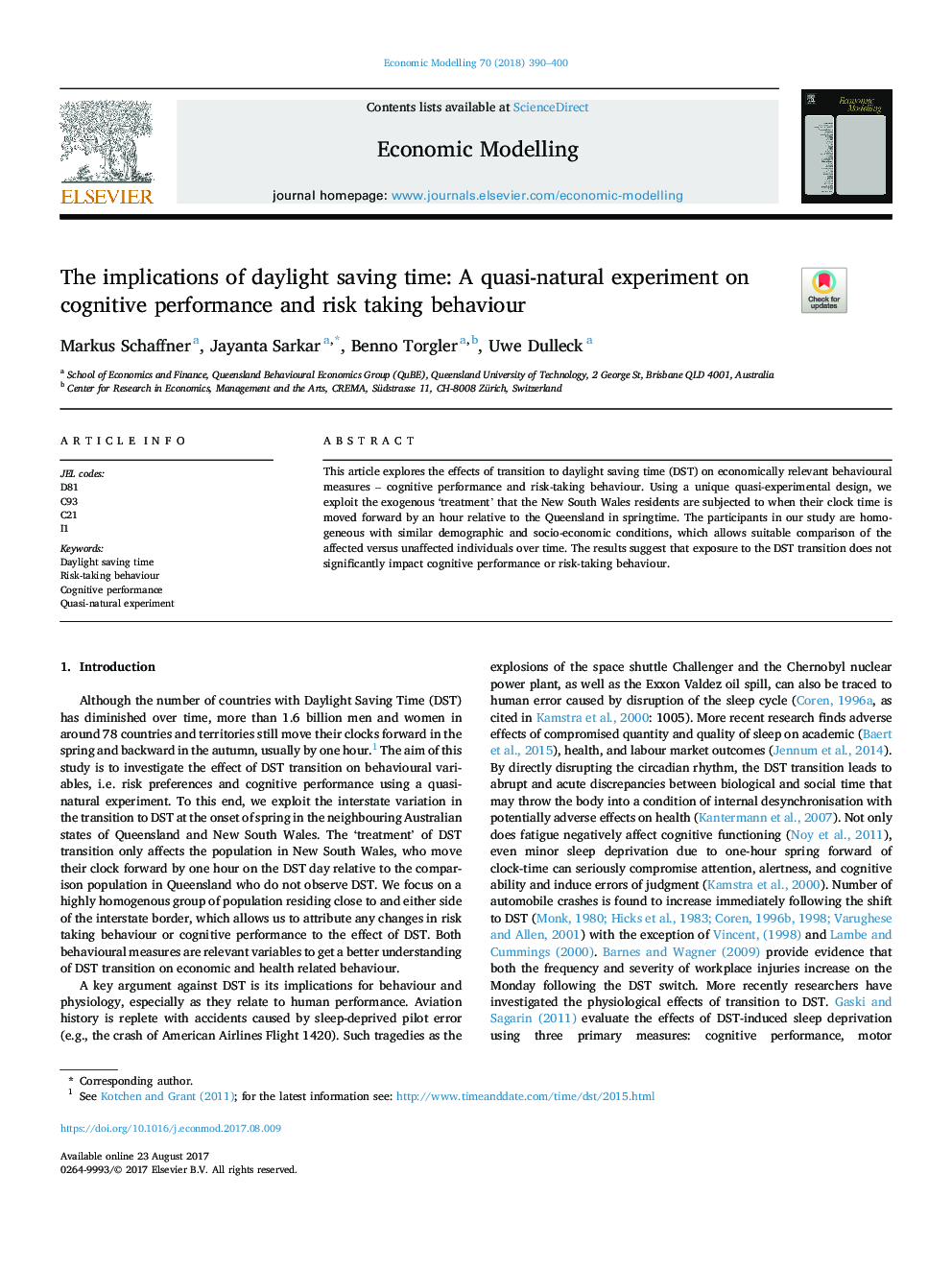| Article ID | Journal | Published Year | Pages | File Type |
|---|---|---|---|---|
| 7347293 | Economic Modelling | 2018 | 11 Pages |
Abstract
This article explores the effects of transition to daylight saving time (DST) on economically relevant behavioural measures - cognitive performance and risk-taking behaviour. Using a unique quasi-experimental design, we exploit the exogenous 'treatment' that the New South Wales residents are subjected to when their clock time is moved forward by an hour relative to the Queensland in springtime. The participants in our study are homogeneous with similar demographic and socio-economic conditions, which allows suitable comparison of the affected versus unaffected individuals over time. The results suggest that exposure to the DST transition does not significantly impact cognitive performance or risk-taking behaviour.
Keywords
Related Topics
Social Sciences and Humanities
Economics, Econometrics and Finance
Economics and Econometrics
Authors
Markus Schaffner, Jayanta Sarkar, Benno Torgler, Uwe Dulleck,
